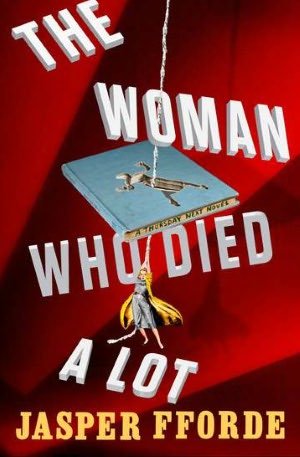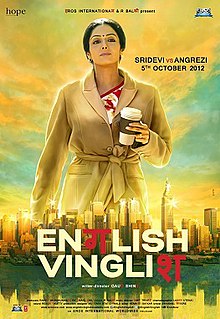Woody Allen's romp through Europe has now brought him to The Eternal City, with an all-star cast of Americans and Italians stumbling through a series of ridiculous and comic mishaps in Roma.
To Rome with Love features four separate stories, with no connecting thread apart from the fact that they're all based in Rome. In one tale, Allen and Judy Davis play an American couple who are meeting their daughter's Italian fiance for the first time. Allen, a former opera director, hears his daughter's prospective father-in-law singing a glorious aria in the shower and decides that he must showcase this man's talent, even against the wishes of his horrified family. In another story, Roberto Benigni plays an ordinary family man who works as a clerk but wakes up one day to discover that he has become inexplicably famous and is dogged everywhere by the paparazzi. What follows is an amusing treatise on the culture of being famous for being famous, and the fleeting nature of this undeserved fame.
 A third story features a naive Italian couple who have arrived in Rome for their honeymoon and are promptly separated due to unforseen circumstances. The new bride faces temptation when she arrives at a film set featuring some of her favorite Italian actors, including a particularly amorous leading man, while the new groom has to deal with a prostitute (played by Allen's latest muse, Penelope Cruz) who mistakenly arrives in his hotel room and has to pretend to be his wife when his relatives see them in a compromising position. The fourth and final story follows Alec Baldwin, playing an architect named John who is vacationing in Rome and runs into Jack (Jesse Eisenberg), a student who lives in the same house where John lived as a student 30 years ago. Jack invites him home, and John proceeds to become a mentor to the hapless Jack, who is living with his girlfriend Sally (Greta Gerwig), but is fascinated with her visiting best friend, Monica (played by Ellen Page, in a hysterical role as an extremely pretentious and narcissistic actress).
A third story features a naive Italian couple who have arrived in Rome for their honeymoon and are promptly separated due to unforseen circumstances. The new bride faces temptation when she arrives at a film set featuring some of her favorite Italian actors, including a particularly amorous leading man, while the new groom has to deal with a prostitute (played by Allen's latest muse, Penelope Cruz) who mistakenly arrives in his hotel room and has to pretend to be his wife when his relatives see them in a compromising position. The fourth and final story follows Alec Baldwin, playing an architect named John who is vacationing in Rome and runs into Jack (Jesse Eisenberg), a student who lives in the same house where John lived as a student 30 years ago. Jack invites him home, and John proceeds to become a mentor to the hapless Jack, who is living with his girlfriend Sally (Greta Gerwig), but is fascinated with her visiting best friend, Monica (played by Ellen Page, in a hysterical role as an extremely pretentious and narcissistic actress).
These disparate anecdotes are equally funny and inane. Each story has its own neurotic Woody Allen character, whether it's Jesse Eisenberg, Alessandro Tiberi as the worried Italian newlywed, Roberto Benigni, or Allen himself. And each tale features a series of observations about life, people, and the complexities of human relationships. It's a hodgepodge of observations made throughout Allen's movies, but they're still universal and hysterical. There's also a nice helping of farce and over-the-top screwball antics that keep you in stitches even as you consider the absurdity of what you're watching.
Unlike Allen's other European movies, To Rome With Love doesn't evoke the same fascination with the film's locale. Match Point was a classy British enterprise, Midnight in Paris was laced with French attitudes, Vicky Cristina Barcelona had a distinctly Spanish sensibility. Almost one-half of the dialogue in To Rome With Love is conducted in Italian, but it feels like a movie that could have taken place anywhere. Rome has nothing to do with the plot apart from supplying the language. But perhaps that is Allen's greatest observation about humanity. Whether you're in Rome, Paris, or the Upper East Side, people are still having the same ridiculous conversations and getting into ridiculous situations.
To Rome with Love features four separate stories, with no connecting thread apart from the fact that they're all based in Rome. In one tale, Allen and Judy Davis play an American couple who are meeting their daughter's Italian fiance for the first time. Allen, a former opera director, hears his daughter's prospective father-in-law singing a glorious aria in the shower and decides that he must showcase this man's talent, even against the wishes of his horrified family. In another story, Roberto Benigni plays an ordinary family man who works as a clerk but wakes up one day to discover that he has become inexplicably famous and is dogged everywhere by the paparazzi. What follows is an amusing treatise on the culture of being famous for being famous, and the fleeting nature of this undeserved fame.
 A third story features a naive Italian couple who have arrived in Rome for their honeymoon and are promptly separated due to unforseen circumstances. The new bride faces temptation when she arrives at a film set featuring some of her favorite Italian actors, including a particularly amorous leading man, while the new groom has to deal with a prostitute (played by Allen's latest muse, Penelope Cruz) who mistakenly arrives in his hotel room and has to pretend to be his wife when his relatives see them in a compromising position. The fourth and final story follows Alec Baldwin, playing an architect named John who is vacationing in Rome and runs into Jack (Jesse Eisenberg), a student who lives in the same house where John lived as a student 30 years ago. Jack invites him home, and John proceeds to become a mentor to the hapless Jack, who is living with his girlfriend Sally (Greta Gerwig), but is fascinated with her visiting best friend, Monica (played by Ellen Page, in a hysterical role as an extremely pretentious and narcissistic actress).
A third story features a naive Italian couple who have arrived in Rome for their honeymoon and are promptly separated due to unforseen circumstances. The new bride faces temptation when she arrives at a film set featuring some of her favorite Italian actors, including a particularly amorous leading man, while the new groom has to deal with a prostitute (played by Allen's latest muse, Penelope Cruz) who mistakenly arrives in his hotel room and has to pretend to be his wife when his relatives see them in a compromising position. The fourth and final story follows Alec Baldwin, playing an architect named John who is vacationing in Rome and runs into Jack (Jesse Eisenberg), a student who lives in the same house where John lived as a student 30 years ago. Jack invites him home, and John proceeds to become a mentor to the hapless Jack, who is living with his girlfriend Sally (Greta Gerwig), but is fascinated with her visiting best friend, Monica (played by Ellen Page, in a hysterical role as an extremely pretentious and narcissistic actress).These disparate anecdotes are equally funny and inane. Each story has its own neurotic Woody Allen character, whether it's Jesse Eisenberg, Alessandro Tiberi as the worried Italian newlywed, Roberto Benigni, or Allen himself. And each tale features a series of observations about life, people, and the complexities of human relationships. It's a hodgepodge of observations made throughout Allen's movies, but they're still universal and hysterical. There's also a nice helping of farce and over-the-top screwball antics that keep you in stitches even as you consider the absurdity of what you're watching.
Unlike Allen's other European movies, To Rome With Love doesn't evoke the same fascination with the film's locale. Match Point was a classy British enterprise, Midnight in Paris was laced with French attitudes, Vicky Cristina Barcelona had a distinctly Spanish sensibility. Almost one-half of the dialogue in To Rome With Love is conducted in Italian, but it feels like a movie that could have taken place anywhere. Rome has nothing to do with the plot apart from supplying the language. But perhaps that is Allen's greatest observation about humanity. Whether you're in Rome, Paris, or the Upper East Side, people are still having the same ridiculous conversations and getting into ridiculous situations.










